In today’s dynamic travel market, ensuring financial protection for customers is crucial for both consumer confidence and the integrity of the industry. One of the key measures travel companies employ under the Package Travel Regulations is the use of trust accounts. These accounts play an instrumental role in safeguarding customer funds until the completion of their travel arrangements. This article delves into how these trust accounts operate to provide this essential layer of protection.
Concept and Purpose of Trust Accounts
A trust account is a dedicated bank account where customer funds are deposited and held separate from the travel company’s operational finances. The fundamental purpose of these accounts is to ensure that, in the event of the company’s financial difficulties or insolvency, customer monies are protected and can be refunded or used to fulfil their booked travel services.
Unlike a general business account, funds in a trust account cannot be accessed for the company’s payroll, marketing, or any operational needs. Instead, they are earmarked strictly for the payment of suppliers and services directly related to customer bookings.
Operational Mechanism of Trust Accounts
When a customer books a travel package, their payment is deposited directly into the trust account. The funds remain in this account until certain conditions are met. Typically, payments to suppliers such as hotels, airlines, and excursion companies are only released when the customer has commenced their journey or after the travel services have been satisfactorily provided. This ensures that, if a company were to face financial adversity, the majority of customer funds would still be intact and retrievable.
The operation of these accounts is often overseen by an independent trustee or accountant, ensuring adherence to legal obligations and adding an additional layer of oversight and transparency.
Impact on Consumer Confidence
The establishment and use of trust accounts can significantly bolster consumer confidence. Knowing that their money is protected assures customers that their investment is secure, encouraging them to book with companies that utilise this financial safeguard. This confidence is crucial, particularly in an industry susceptible to sudden economic shifts or unforeseen events that may impact travel companies' liquidity.
Moreover, in a competitive market, promoting the existence of a trust account can serve as an effective marketing tool. Customers tend to favour companies that demonstrate a commitment to financial protection, viewing this as a sign of integrity and reliability.
Legal and Regulatory Framework
Trust accounts are part of the broader regulatory framework aimed at enhancing consumer protection in the travel sector. Under the Package Travel and Linked Travel Arrangements Regulations 2018, organisers of package holidays are required to have arrangements in place to protect customer funds. While offering financial protection through ATOL bonding or insurance policies are other options, trust accounts are a preferred route for many, owing to their straightforward and transparent nature.
Challenges and Considerations
Despite their advantages, managing a trust account requires meticulous attention to detail and compliance. Companies must ensure that they maintain accurate records and demonstrate that funds are appropriately accounted for at all times. Additionally, the separation of funds necessitates careful planning of cash flow management, as operational expenses must be managed without accessing customer payments.
Furthermore, setting up and administering a trust account involves costs that can impact a company’s bottom line. For smaller travel businesses, these financial implications need careful consideration. However, the long-term benefits of customer trust and business sustainability generally outweigh these initial challenges.
Conclusion
In conclusion, trust accounts represent a vital mechanism for protecting customer funds within the travel industry. As a tool enshrined within the regulatory framework, they provide not only a financial safety net for customers but also a competitive advantage for travel companies committed to demonstrating their reliability and commitment to consumer protection. By ensuring that funds are carefully held and managed until a customer’s holiday is complete, trust accounts continue to play a crucial role in fostering trust and stability in the ever-evolving world of travel.









.svg)





